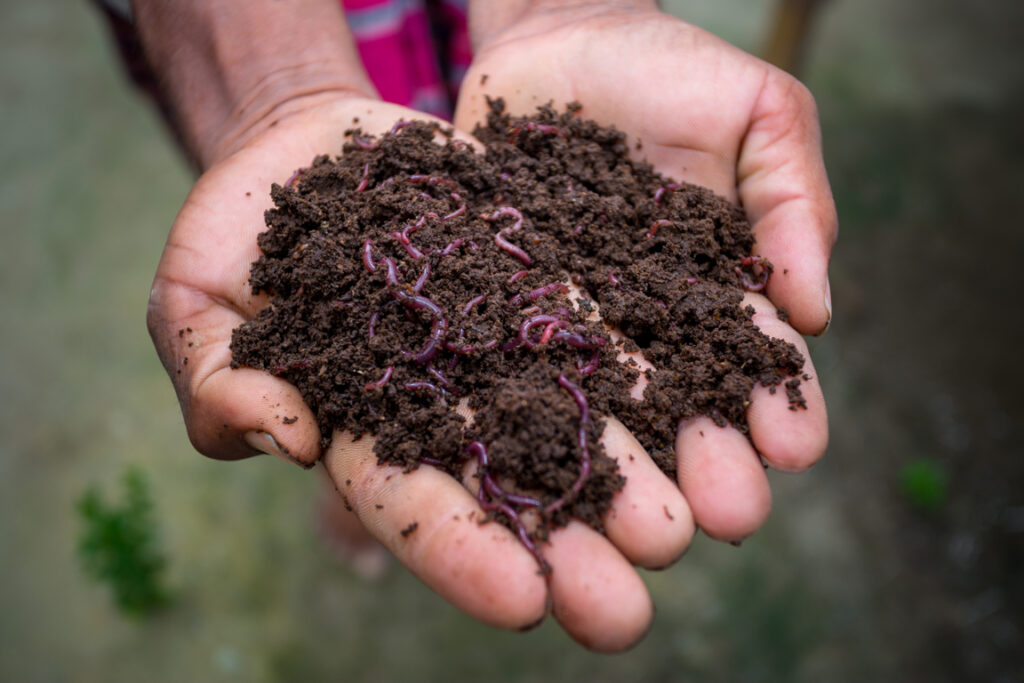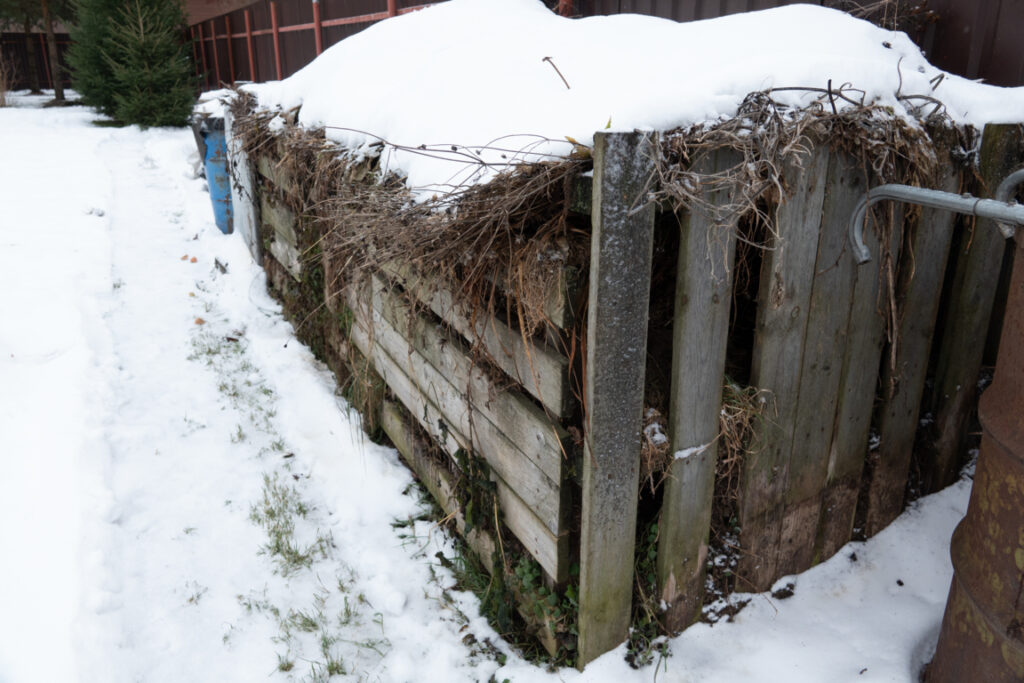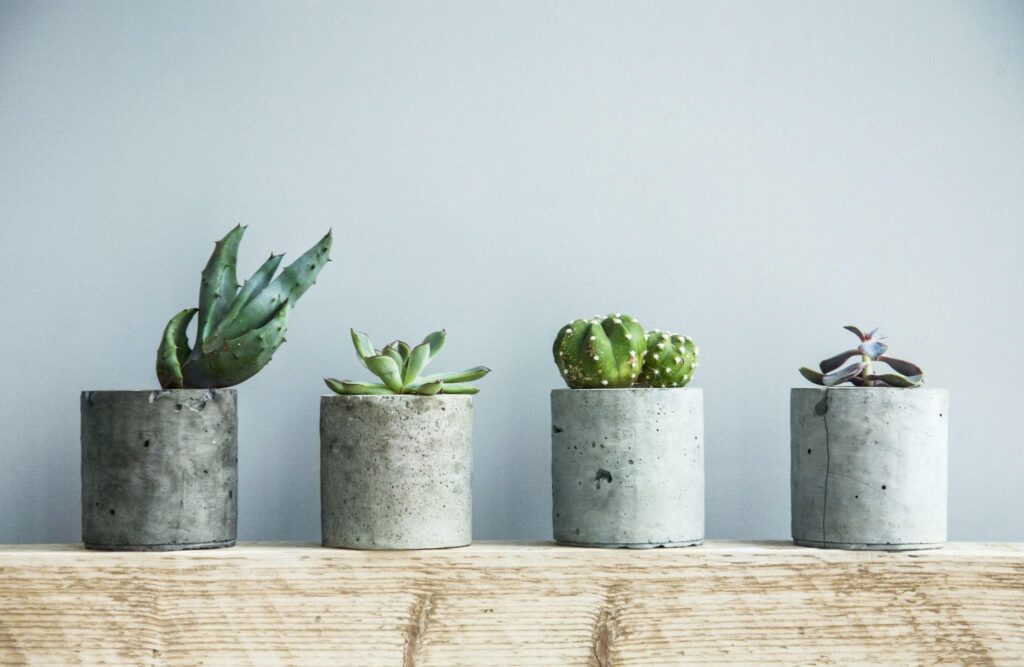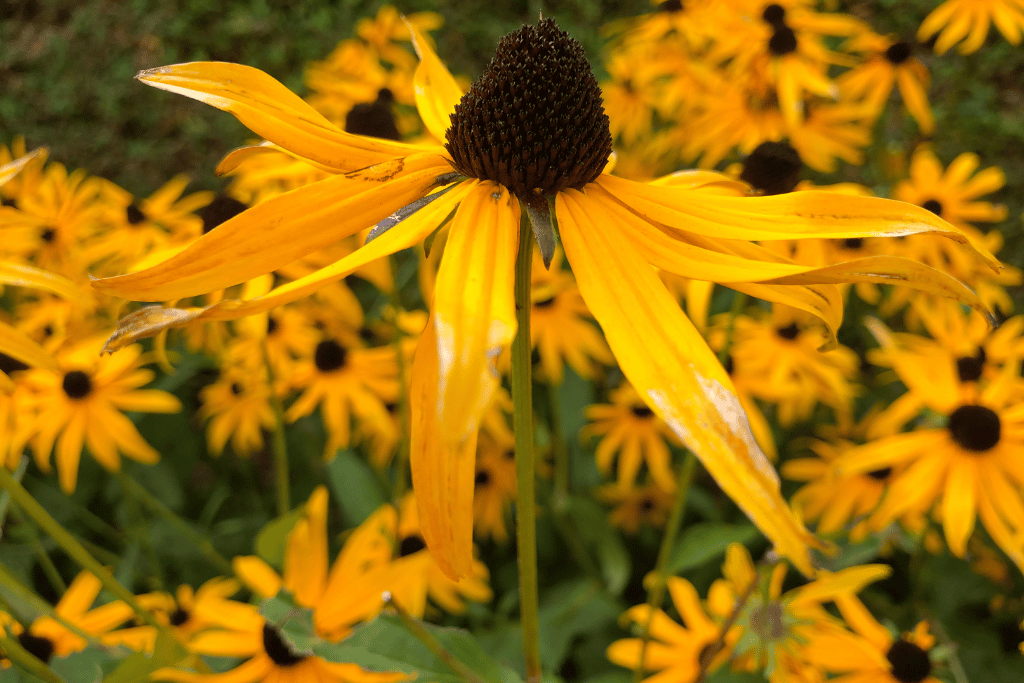
There’s nothing more impatient than a gardener. Whilst how to get seeds to sprout faster is the most nail-biting experience for us all, a close second is how to speed up composting.
Fresh, dark, chemical-free, and nutrient-rich soil is a must for healthy plants. The easiest way to achieve this good growing material is by composting. It takes time for what we feed our compost to break down into usable soil material. So how can we make composting faster? Let’s take a look…
What is the fastest method of composting?
There is a myriad of methods recommended as the fastest and best ways to compost. We’re going to take a look at a few that are relatively simple for the average gardener and provide a few tips and plant a few ideas worthy of further research.
Probably the fastest method of composting is the Berkeley method or hot composting. We’ll touch on that briefly in a while but it’s not for every gardener. The fastest methods aren’t often the easiest unless you are lucky enough to be able to dedicate all your time to gardening.
How to speed up composting naturally
If you’re looking for a cost-conscious and minimal-effort way how to speed up composting then paying attention to the size of the ingredients you add and really getting a good mix of ingredients is a good place to start.
Composting is not an exact science unless, of course, you are approaching it from a scientific standpoint, in this case, it might well be. We’re not going to get into the science here, but compost experts tend to recommend an ingredient mix heavier on Carbon and lighter on Nitrogen. For quick examples, sawdust and leaves are higher in carbon than fruit and vegetable peelings, coffee grinds, and grass clippings. So, if you are heavy with adding kitchen scraps you might want to make sure you head out and add plenty of dried autumn leaves when you can.

One of the easiest things you can do to help your compost pile though is just to make everything smaller. The tinier the pieces the faster nature, microorganisms, worms, and bugs can get to work finishing up creating a fine dark mix you can add to your garden beds, greenhouses, and pots.
There are lots of recommended methods for composting such as the 3-bin compost method. But, just simply putting any larger denser compost materials into a “long-term” compost pile. Then, having another pile with smaller ingredients that you hope will break down much faster might be sensible when you need extra soil nutrients in a hurry.
As well as shredding or chopping compost materials into smaller pieces, layering them will help to give them maximum exposure to the bacteria, microorganisms, and insects which are going to be doing the decomposition work for you. Regularly turning or digging over your compost pile is also going to help the process.
How do you make compost in 14 days?
Other key elements for your compost heap are heat and moisture. A good level of moisture will help with decomposition, your compost doesn’t want to be too wet but it definitely does not want to be dry. Warmth, or heat, also helps decomposition and we’ll likely get into hot composting methods later on here at Theplantbible. Deep Green Permaculture shares 18-day know-how to speed up composting using the Berkeley Hot Composting Method. Other experts share 14-day composting methods using the same or similar techniques oriented around hot composting.

These fast methods of composting involve making a large compost heap all in one go, with just the right consistency and moisture level, and making sure it’s thoroughly turned. Sadly, it’s not every gardener that can suddenly create one large pile.
For now, it’s worth noting there are some dangers of a hot compost pile, compost can ignite so make sure you check it regularly, turn your compost, keep it moist, and make sure it doesn’t get too hot!
What can I add to compost to speed it up?
What can speed up decomposition in compost? There is such material? Yes! Absolutely, some materials you add to your compost will speed up the whole composting process, and keeping an eye on the overall mix of your compost, as we’ve said, is vital.
So, we already dug right into getting a good natural mix of compost materials. That’s making sure you have leaves, and maybe even sawdust or small wood shavings mixed up with your fruit and vegetable peelings and scraps and your coffee grinds as well as your grass cuttings.

If you think you are missing out on some key components for your compost pile it’s well worth having a chat with friends, family, and neighbors to see if they might be able to donate what you need. It’s only us avid gardeners that are going to be over-protective of our fallen leaves. So, you never know who might be your secret ally to speed up the composting process.
Sticks and branches
Putting a layer of branches, sticks, twigs, and such right at the bottom of your compost pile is going to allow air to get right through, aiding the decomposition process. Doing this is also going to allow excess water to drain.
Old soil
Old soil or older compost that’s already been used will have many of the bacteria and microorganisms needed for your compost to really get decomposing. You could throw in some soil from last year’s pots or dig a little from an existing garden bed and just go ahead and layer it into your new compost pile.
Consider compost activators
You can buy compost activators that promise to speed up the composting process. There are lots of different choices available. We’re taking the natural approach in this article so aren’t going to delve into the options.
If you are considering compost activators you need to thoroughly assess the ingredients, are there any chemicals? Are you gardening organically or just looking to take a natural wholesome approach to growing vegetables? Some compost activators contain microbes similar to the ones you’ll find naturally in your compost pile already. Your own microbes have developed based on your compost ingredients and your own environment. If you add microbes they might not even survive your conditions!
Nettles and comfrey

There are lots of other nutrient-rich ingredients you can seek out and add to your compost pile. Nettles or nitrogen-rich comfrey leaves are two really simple options that you might even find in your yard, or by foraging. If you do add the leaves of these plants avoid using the seeds or roots or you’ll likely end up with a compost heap, and then a garden, full of these plants. Comfrey and nettles can even be used to make a natural liquid fertilizer.
Animal manure
Manure is an excellent addition to a compost pile but be aware certain types of manure can be too “hot,” for your plants right away. Rabbit droppings are generally considered safe to add to your garden at any time and again can be used to make a “tea” your plants will love!
Other animal manures such as chicken, donkey, and cow manure all need a substantial amount of time to break down, often recommended as a year or longer.
When using animal manure, it’s worth checking and understanding the source and the content. What the animals were fed may pass through into your soil, and there are concerns about antibiotics used in farming. Improperly composted manure can also contain pathogens that are dangerous to humans. A safe option when adding animal manure is to buy pre-composted and safe manure from a garden center.
WORMS, WORMS, WORMS!
Possibly the best little assistants for your compost pile and one of the best assistants for your entire garden are worms. Worms will consume compost material and expel even better, organically processed nutrients for your soil called worm casings. Worms also aerate soil and compost helping the overall structure as well as the inhabitants of your compost along.
Worms will find your compost pile by themselves and you can throw in any you find while gardening too. If you are really keen on worms and want a super fast way how to speed up composting then you can look into buying worms to add to your soil and worm composting, or vermiculture, as a method all on its own.
We’re nearly at the end of this quick overview to answer the popular question of how to speed up composting. But, let’s just answer some last, more specific, questions.

How to speed up worm composting
Worms speed up composting, but how do you speed up those little worms? Worms don’t like an environment too dry so make sure there’s enough moisture. They also like oxygen, like most compost piles, so once again turning the compost matter is important. If you have dedicated vermicompost then you’ll need to make sure you are keeping your worms at a temperature they like. In a normal compost heap, making sure it doesn’t get too hot at the height of summer is going to help your worms keep working instead of them heading for cooler soil. Again with a vermicomposting project you are going to want to keep an eye on what you are “feeding,” your worms. Worm composting can handle food scraps that you’d usually avoid putting in your garden compost. But, there are foods worms won’t like.
How to speed up cold composting
Cold composting is simply normal composting as opposed to more specific hot composting methods where you turn the pile more regularly to help it heat. With cold composting, you are simply building your compost pile and letting nature, and microorganisms, gradually do the work.
Many of the quick tips we’ve already shared will help with your low-effort cold compost pile. You can keep the materials small, add extra dirt, and make sure you have a good mix of ingredients.
How to speed up composting in winter
Winter composting can depend on your climate. In the UK and Europe, for example, temperatures might remain warm enough that your compost continues to decompose, at least somewhat, during the winter. In much colder climates, like parts of the US and Canada, where the ground freezes for most of the winter, your composting efforts might stall.

There are a few things you can do to speed up composting in winter. You could cover your compost pile with something breathable, like cardboard, to keep it warmer. You could also have a specific compost bin for the winter that can be kept somewhere warmer and is more accessible for taking care of your winter food scraps. It’s still wise to try and mix up your ingredients, so keep adding leaves and such when you can or you won’t have a balanced process. Or, come spring, just mix up your winter compost with your usual pile that is still decomposing.
How to speed up composting in a tumbler
One of the easiest composting activities to achieve with a tumbler is the aeration process. A tumbler is designed so you can keep your compost moving so that it breaks down faster. Then, as usual, you can make sure you have the right mix of materials and make them as small as possible before you add them. Adding old soil will also help. Your tumbler might be easy to move and if so you can keep it in a sunnier position, when it’s not too hot, for extra warmth.
So, there are a few pointers, and maybe a few more ideas to investigate, for how to speed up composting. There is plenty you can do, without spending a fortune, to help produce healthy compost for your plants, faster. But, like most things in the garden, the best results will take a little time.



